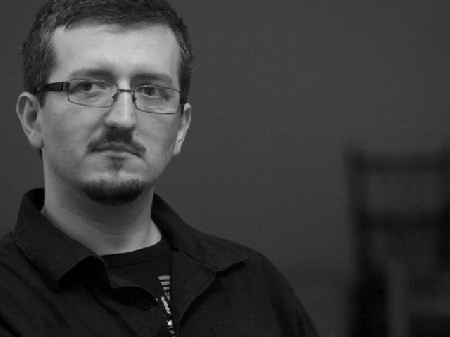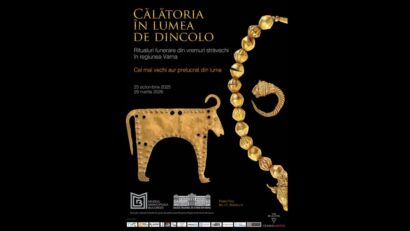Playwright Szekely Csaba Wins the Imison Award
Early this year, playwright Szekely Csaba of Targu Mures was granted the Imison Award for best debut script, by the British Writers Society.

Luana Pleşea, 14.09.2013, 12:00
Early this year, playwright Szekely Csaba of Targu Mures was granted the Imison Award for best debut script, by the British Writers Society. Competing alongside two Brits, Szekely Csaba is the first non-Brit to be nominated for the award. The award winning radio play script “Do You Like Bananas, Comrades?” had already won in 2009 the prize for best European play granted by the BBC, and as such it was broadcast on the British radio. Szekely Csaba had only written short prose before his first play. His success encouraged him to write yet another play, this time for the stage. “‘Mine Flowers” won in 2011 the first prize at the National Theater Festival in Pecs, called the Vilmos award for best script. The play became the first of a trilogy, followed by “Mine Pitch Dark” and “Mine Water”. The first two plays were staged in Romania and in Hungary, and won awards in both countries. The third part of the trilogy, “Mine Water”, won a playwriting contest at the Orkeny Istvan Theater of Budapest, where it will be staged this year.
Many prizes for just a few years for a young playwright. Here is his take on it:
“It is true that I got too many prizes in the last two years. When I meet an acquaintance I haven’t seen in a while, they always ask me what other award I got. It’s not that usual around these parts. These awards give me confidence. I was feeling insecure when I started writing for the BBC contest, and I am still insecure every time I sit down to write something. I still don’t know if I am talented enough or if I am able to write a good play. And when I get an award, that gives me strength and tells me I should go on, write the next play.”
The plot of the three plays in the trilogy occurs in the same Transylvanian mining village, the language is appropriate, but the characters and issues they face are different. Here is the author telling us about it:
“I am most interested in the way in which people act in various situations, what it means to be human, what it means to be a good human being. These things can be best captured when you talk about social issues. There have always been social issues, but now there are more specific issues, at least here, in the Hungarian villages of Transylvania. The plays have been staged in Hungary, and I realized, by their reactions, that these are not just issues relating strictly to Transylvania, they are issues that the Hungarian audience from Hungary can relate to. The second part of the trilogy deals with corruption and nationalism, and the audience so far has been very receptive, both Hungarian and Romanian. ‘Mine Flowers’ deals with joblessness, alcoholism, high suicide rate, the latter being specifically Transylvanian. But the other problems are universal — when we are left without a job and we choose alcohol we’re desperate, there’s nothing we can do and we don’t want to do anything either. The third play, ‘Mine Water’, is about religion. The plot is centered on the priest’s house. We know the village pries and schoolteacher, therefore in fact this is about the spiritual education and intellectual education in Transylvania, and the failure of education. It is also about pedophilia in the church, and lots of other uncomfortable things for many.”
Szekely Csaba’s style is to grapple with human issues in a social context, which has brought him a lot of success. His point of reference is Chekhov, as he himself admits:
“I had a lot to learn from Chekhov, especially his playwriting, as structure, and as psychology also, from the way in which he comprehends the Russian heart, love, or melancholy…I like his phrasing a lot. He formulates things intensely and simply, as if he was talking about the weather, and yet he says everything about the soul. I tried to achieve something similar with my techniques. I am not a pessimist, I am rather an optimist, but skepticism characterizes me in many things. I am more optimistic than my plays, and I believe my optimism comes through in the humor in these plays. I think I should be more tragic, and more pessimistic when I write, because otherwise people drift off, they aren’t touched. For me it is very important for the audience to be touched by what they see on stage.”
Right now, Szekely Csaba is working on a play for actors from Figura Studio, Gheorgheni, staged by director Alexandru Dabija. The same director will be staging the play which was written by the author especially for actors Marcel Iures and Nicu Mihoc, a show designed for travel. Szekely Csaba is preparing to go into film as well. He is writing a film version of his play “Mine Flowers”. Of course, he also entered a contest in Hungary with a history play about Michael the Brave, a major historic figure who briefly ruled the three Romanian principalities: Wallachia, Moldavia and Transylvania.






























